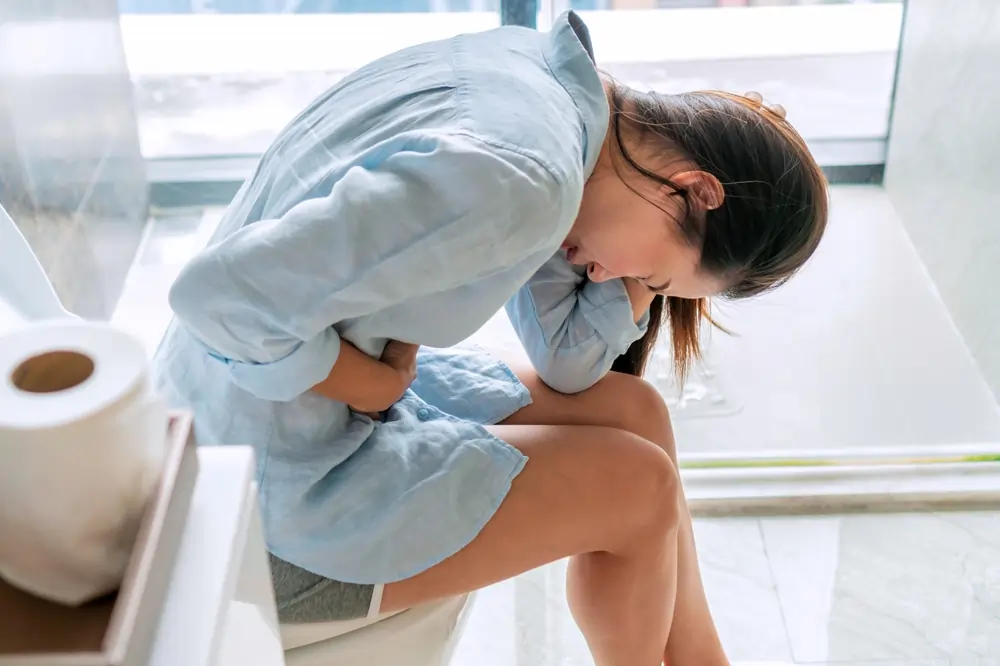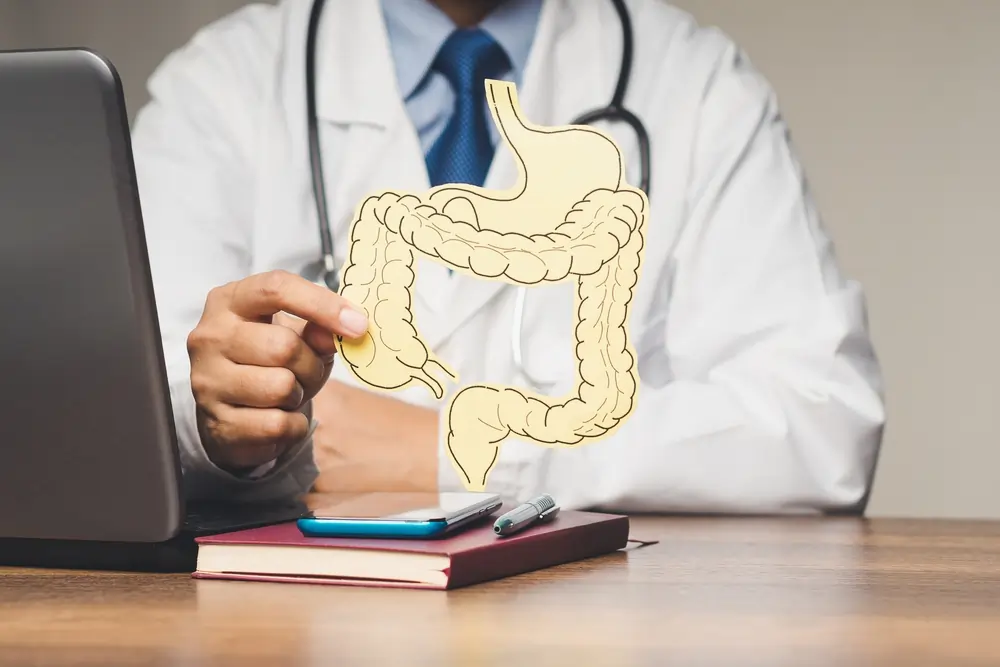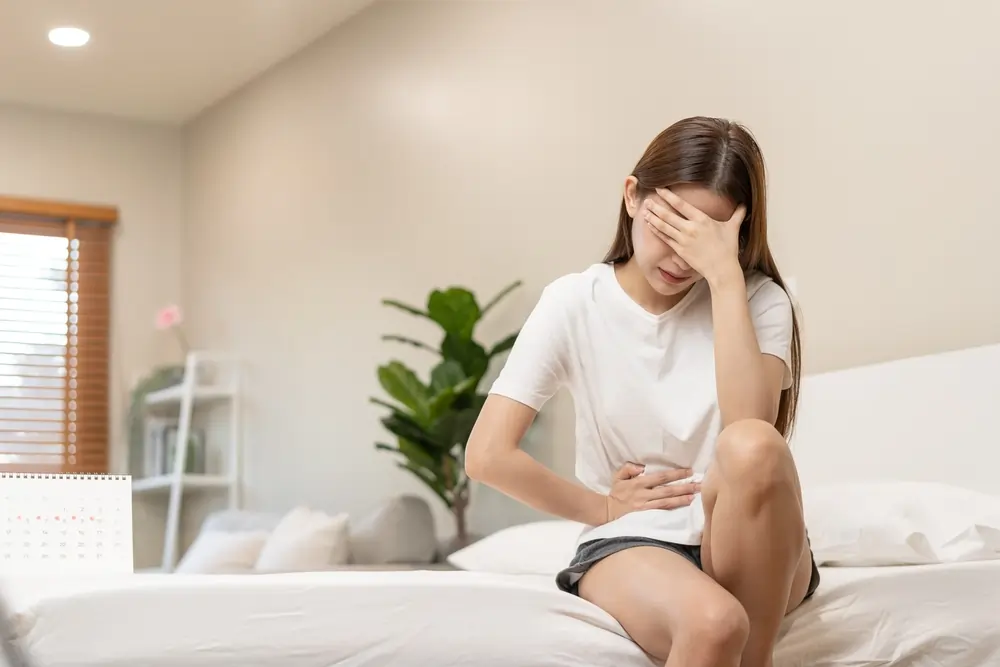Imagine you are planning a night out with your partner. He calls you, “Hey honey! I will pick you up at 9 PM from your doorstep.” But you need to go into the washroom to get things ready. You have eaten a lot in the afternoon. Now you want to look slim, but the dress you want to wear is tight, and you can’t breathe. You are in a hurry, but your bowl seems to be resisting. You want to get rid of the eaten stuff. However, we believe that to relieve constipation in females is quite challenging. A study suggests that about 17% of females don’t want to spend their time with male partners because of constipation issues. Women believe that their bellies are hurting and they can’t dine out once they don’t get rid of the already eaten things. We sit together with Med Hacks’ top-rated gastroenterologists to solve this issue so that more women can walk freely and confidently whenever they can roll on with their partners.
Constipation in females brings medical issues like belly discomfort, frustration, tiredness, and disliking things that you liked once. Moreover, you feel like you don’t want to eat anything. A study in Cambridge reveals that 9% of the accumulated belly fat is caused by constipation.
Understanding Constipation in Females
To relieve constipation in females, we need to understand the dynamics of bowel movements. There are specific ways to describe constipation in women, like the frequency of bowel movements, causes of constipation in females, etc.
Frequency of Bowel Movements
A bowel movement is the final stop in food movement through your digestive tract. In simple words, bowel movements define the urgency to go into the washroom to clean your stomach. You need to go into the washroom at least thrice a day so that you can clean up your digestive system. If you feel the urgency to visit a washroom thrice an hour or more and still haven’t gotten rid of the rotten food inside your stomach. You can expect then that there is something wrong with your stomach. The worst you can imagine is the constipation pain.

Causes of Constipation in Females
Before planning a method to relieve constipation in females, we need to discuss the causes of constipation in women.
- Hormonal Fluctuations
One of the causes of constipation in women is hormonal fluctuations. If the menstrual cycle is prolonged. You are eating a lot during pregnancy because your mother-in-law told you to give birth to a healthy child. (OR) It could be because of a menopause. Menopause is when women are no longer fertile, and their menstruation age is over. All these things contribute to the constipation. Moreover, the rise and fall of progesterone and estrogen levels can also lead to constipation during menstruation. Furthermore, pregnancy also contributes to the slow digestion and hence causing constipation.
- Lack of Proper Diet and Dehydration
“You are what you eat.”
A famous saying states that what you eat and drink plays a significant role in smoothing your healthier life. If you eat a diet with a low fibre percentage, expect a clingy and hardened stool. Constipation can make life hard if you do not drink enough water or juice.
- Lack of Physical Activity
Most people ignore utilising the energy they obtain from the food they eat. If you are lazy, we get it. You don’t want to hit the gym and exercise 2-3 hours on the floor. We understand. Just reduce your carbohydrate, sugar, and calorie intake if you are a girl or a boy who can’t get rid of the food you like. Just adapt to the second option. Hit the gym and sweat off the extra calories. Now, you might ask, “Does exercising fasten the digestion process?” The answer is yes. Get rid of the sluggish muscle and increase the rate of digestion by simply staying active. More blood circulation, calorie burn, and chances of a soft stool.
- Medications With Side Effects
There are some medications and pills available in the market that help you relieve stress and pain. You consume iron supplements, etc. However, little you might know, those medicines may have constipation as a side effect. Beware of such drugs and always consult a physician before using them.
- Medical Conditions
If you are experiencing medical conditions like irritable bowel syndrome (IBS), it can also disrupt your regular bowel movements. Please pay attention to it and consult a medical specialist or a provider.
Signs and Symptoms of Constipation in Females
If you’re experiencing constipation, then pay attention to these five most significant symptoms:
- You may notice fewer than three defecations a week.
- A rigid or lumpy stool.
- Straining during bowel movements.
- A feeling of incomplete evacuation.
- A sensation of blockage in your rectum.
Dietary and Lifestyle Changes for Relief
Increase the Use of Fiber
Dietary fibre is a plant-based carbohydrate that our bodies can’t fully digest. However, it plays a crucial role in keeping our digestive system running smoothly. Here’s how:
- Bulk for Your Gut: Fiber acts like a natural broom, adding bulk to your stool and promoting its smooth passage through the intestines. This helps prevent constipation and keeps you feeling regular.
Fiber Enriched Foods
Embrace a fibre-rich diet by incorporating these delicious options:
- Fruits: Berries, pears, apples (with skin)
- Vegetables: Artichokes, Brussels sprouts, broccoli, sweet potatoes (with skin)
- Whole Grains: Brown rice, oats, quinoa, whole-wheat bread
- Legumes: Beans, lentils, chickpeas
Optimal Fiber Intake to Relieve Constipation in Females
The American Heart Association recommends a daily fibre intake of 25 grams for women and 38 grams for men. To experience the full benefits, gradually increase your fibre intake to reach this goal.
Role of Necessary Hydration to Cure Constipation in Females
Water is vital for healthy digestion. It helps soften stool, making it easier to pass and prevents constipation.
Best Hydration Goals to Get Rid of Constipation
While individual needs vary, aim for eight glasses of water daily. Pay attention to your thirst cues and adjust accordingly. Increase your water intake on hot days or during exercise to stay adequately hydrated.
Shake Your Belly: Move Your Gut
Regular physical activity stimulates your digestive system and aids in the efficient movement of food through your intestines. Exercise also helps reduce bloating and gas.
Best Exercise for Digestion to Cure Constipation
- Walking: A simple and effective way to get your body moving. Aim for at least 30 minutes of brisk walking most days of the week.
- Yoga: Certain yoga poses can massage your internal organs and promote digestion. Look for beginner-friendly yoga routines that focus on twisting and abdominal stretches.
Regular Bathroom Routine
Creating a bathroom routine can significantly improve your digestive health. Train your body to have a bowel movement at a specific time each day, ideally in the morning after breakfast. This regularity allows your body to establish a predictable elimination pattern.
Natural Remedies for Constipation Relief in Females
| Laxative/Softener | How it Works | Usage |
| Flaxseed | Soluble fibre absorbs water, forming a gel to soften stool. It also contains anti-inflammatory omega-3 fatty acids. | Add ground flaxseed to smoothies, yoghurt, or baked goods. |
| Psyllium Husk | Fibre absorbs water, forming a dense compound to soften stool and stimulate bowel movements. Adds bulk. | Mix psyllium husk powder with water and juice, or add to recipes. Drink plenty of water to avoid dehydration. |
| Prunes | Soluble and insoluble fibre combined with sorbitol (laxative sugar alcohol) increases bulk, softens stool, and promotes bowel movements. | Eat prunes as a snack or drink prune juice. |
| Aloe Vera Juice** (internal use only) | Anthraquinones increase intestinal water content and stimulate mucus secretion, creating a laxative effect. | Consume aloe vera juice in small amounts. Look for products specifically intended for internal use. |
| Olive Oil | It acts as a lubricant for the digestive system, easing stool passage. It also stimulates the system for regularity. | Take a tablespoon of extra virgin olive oil on an empty stomach. |
When to See a Doctor for Constipation in Females
Don’t suffer in silence! Here are some signs which hint that it’s time to see your doctor about constipation.

Severe or Persistent Constipation
If constipation is severe, lasting more than a week or two, or returning, it’s best to get checked out.
Concerning Symptoms of Constipation
Seek medical attention if constipation is accompanied by other symptoms like:
- Rectal bleeding (bright red blood or dark, tarry stools)
- Severe abdominal pain or cramping
- Nausea or vomiting
- Unexplained weight loss
- Feeling like you can’t empty your bowels (rectal blockage)
Facing Potential Constipation Complications
Untreated constipation can lead to complications like:
- Hemorrhoids (painful swollen veins in the anus)
- Anal fissures (tears in the skin around the anus)
- Faecal impaction (a complicated mass of stool stuck in the rectum)
Final Thoughts
Remember, if your constipation is severe or persists for more than a few weeks, consult a healthcare professional to rule out any underlying medical conditions. With patience and these tips, you can achieve a healthy digestive balance and feel your best again for more informative content related to medical health and hacks. Do check our website’s blog.

 +92 306 4790704
+92 306 4790704 info@medhacks.online
info@medhacks.online


Leave a Reply